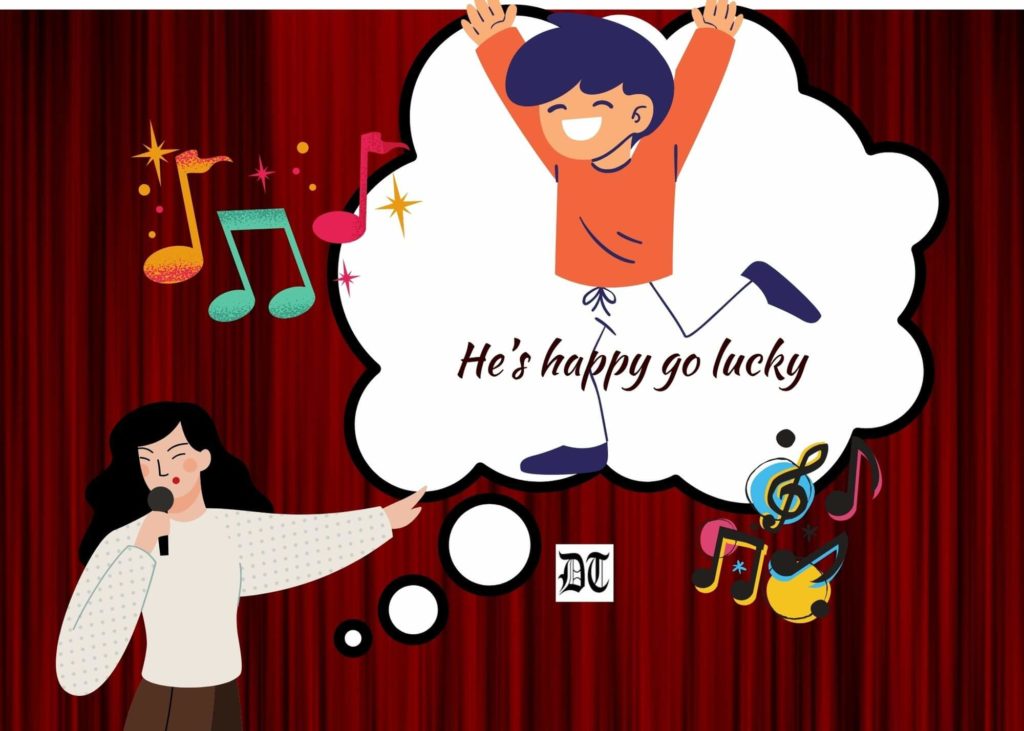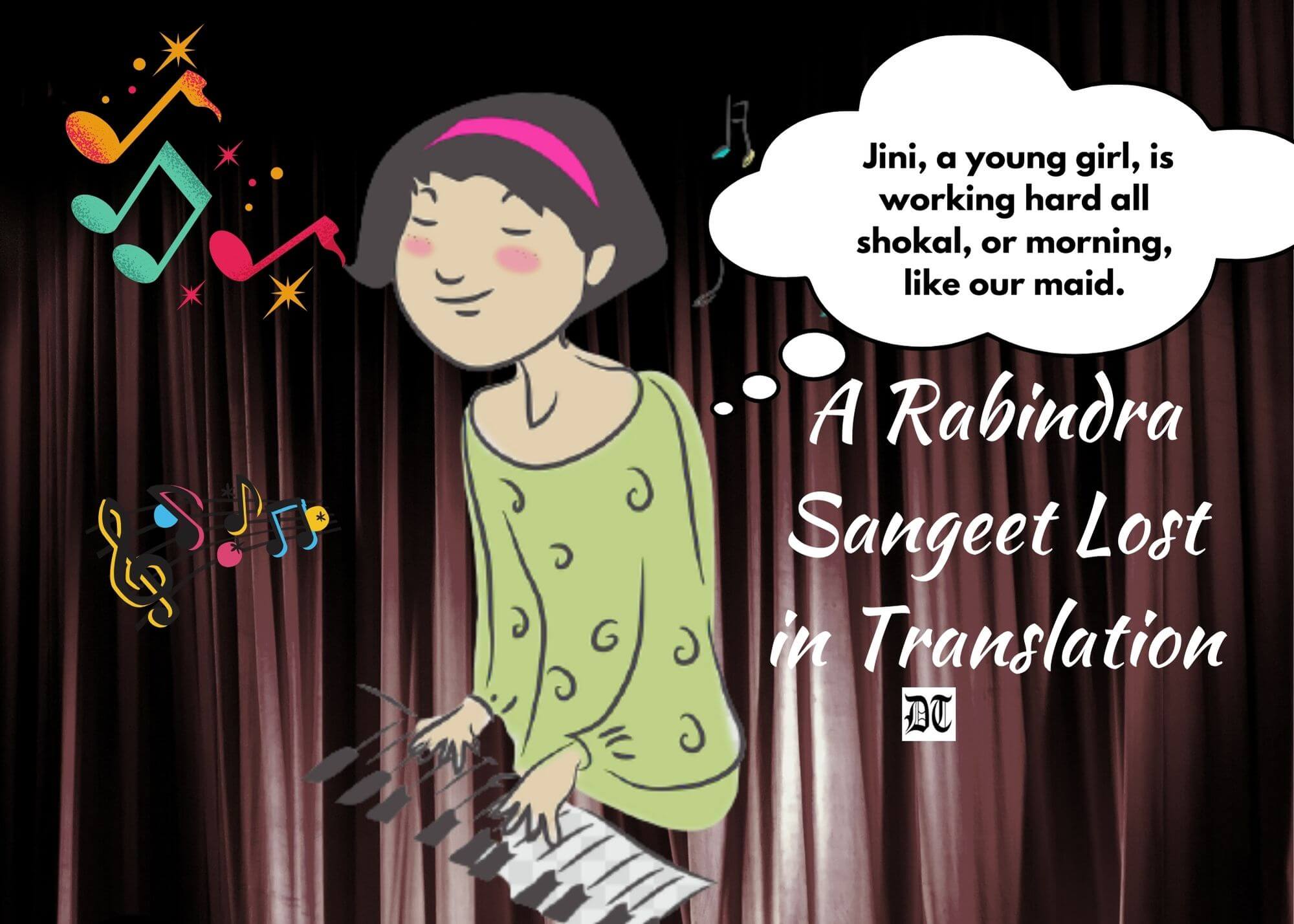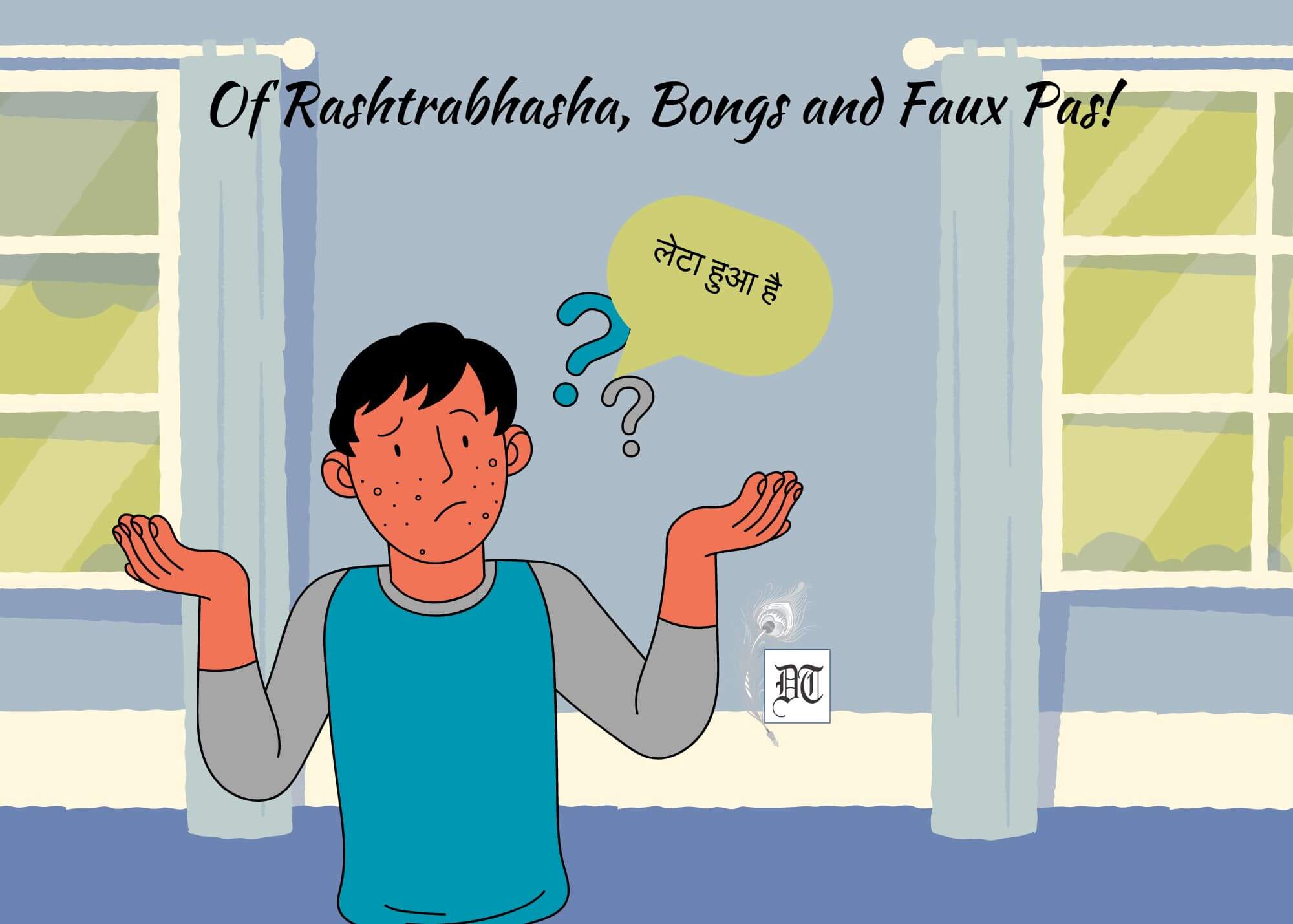Soumya recounts how his younger daughter deciphered Rabindra Sangeet, losing its meaning in translation. A humourous take for Different Truths.
When my children where very young we were living in Kolkata with my parents for a few years. I was keen that they got to know their grandparents and learned Bangla.
My mother soon started their introduction to music, especially Rabindra Sangeet, like all good Bong kids.
This helped my younger daughter, who went on to win many accolades as a western classical singer and later as a rock musician, and currently composes and performs her own Indie Music.
Youngest Performer
She also was the youngest performer in the para Pujo and Rabindra Jayanti, at four years, where she was hardly visible behind her harmonium.
As she couldn’t really read then, and knew very little Bangla, she learned by rote…
As she couldn’t really read then, and knew very little Bangla, she learned by rote, phonetically, as the words were incomprehensible to her, and she tried to make some sense of what she was singing.
Recently, she shared some of her thoughts about those songs and had us all in splits. But it made some strange kind of sense.
Mother’s Favourites
I will try to describe one such song with her interpretation. It was one of my mother’s favourites, “Jini shokol kajer kaji”, which is talking about God.
My daughter’s version …
Jini, a young girl, is working hard all shokal, or morning, like our maid.
Jini, a young girl, is working hard all shokal, or morning, like our maid.
Mora tari kajer songi
She’s totally engrossed
Naughty Grandpa
Tar Nana ronger rongo
Her nanaji or grandpa is a naughty colourful disreputable fellow
Mora Tari roser rongi
We’re party to his pranks
We’re party to his pranks
Tar bipul chonde chonde
Another relative who’s loud and annoying

Happy go Lucky
Mora jai chole anonde
He’s happy go lucky
Tumi jemni bajao bhery moder temni nacher bhongi
The more he plays the drum the more she dances the bhangra
The more he plays the drum the more she dances the bhangra
Ei jonom moron khelay
Mora mili tari melay
On her birthday she met Mili at the mela
Ei dukho sukher jibon moder
Mora tari kajer ongi
Everyone is Sad
Everyone is sad, no idea why
Tini pother kanta paye dole
Sagar giri longhi
A thorn in the foot was the reason for the sadness.
A thorn in the foot was the reason for the sadness.
The end
This is what she remembered today, after two decades.
Makes a weird kind of sense, doesn’t it?
Visual by Different Truths





 By
By

 By
By